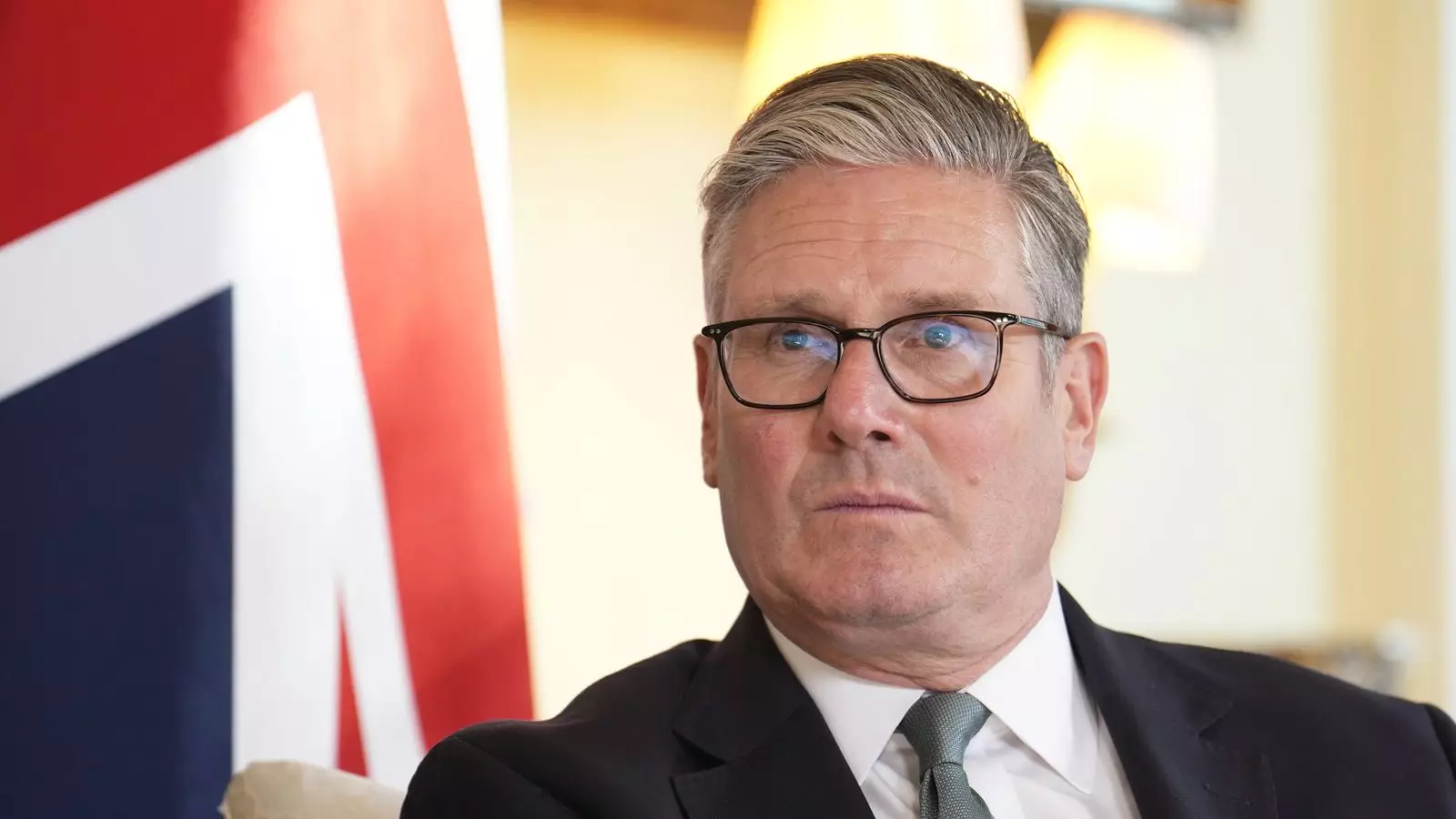In the complex theater of Middle Eastern politics, stability is often presented as a goal, yet it frequently eludes grasp, encumbered by historical grievances, geopolitical power plays, and the specter of nuclear weapons. Recently, Sir Keir Starmer, the UK Prime Minister, emphasized that ensuring stability in the Middle East is of utmost importance. While the intention behind these words is commendable, they also serve as a painful reminder of the precarious nature of diplomacy amid aggressive military posturing, especially in light of recent US strikes on Iranian nuclear facilities.
Starmer’s call for Iran to return to the negotiating table sounds good on paper, yet it encapsulates a deeper irony; how can negotiation be genuinely pursued when military action defines the current narrative? The reality is that diplomatic dialogues become increasingly futile when backroom dealings are overshadowed by bombings. We’re plunged headfirst into a realm where the idea of stability becomes a distant fantasy rather than a viable strategy.
A Threat Beyond Borders
As stated by Starmer, Iran’s pursuit of nuclear capabilities presents a grave threat to international security. This proclamation echoes the sentiments of numerous leaders who have warned against the implications of a nuclear-armed Iran. Yet, it’s crucial to address an uncomfortable truth: the focus on Iran’s nuclear ambitions has often overshadowed the multifaceted geo-political strains within the Middle East. There exists a paradox where the very actions designed to curb Iran’s ambitions risk escalating tensions rather than alleviating them.
The U.S. airstrikes, described by Donald Trump as decisive actions aimed at safeguarding global peace, instead illustrate a one-dimensional approach to a profoundly intricate problem. The irony lies in the fact that Trump’s brash boasting about the obliteration of Iran’s nuclear sites is more likely to inflame hostilities than resolve them. The result is a global narrative forged in fear rather than cooperation—demonstrably ineffective and emblematic of an aggressive diplomatic failure.
Echoes of Retaliation: The Cycle of Violence
In response to the attacks, Iranian officials have made sharply worded declarations, asserting that the strikes will yield “everlasting consequences.” This reaction encapsulates a systemic issue: the cyclical nature of retaliation that has characterized Middle Eastern conflicts for decades. The cycle of military action followed by retaliation prevents the establishment of a sustainable peace and instead propagates an environment ripe for distrust and hostility.
The rhetoric of resistance is heightened by the implications of military action, leading to what can only be described as a dangerous escalation. Abbas Araghchi’s warning that Iran reserves the right to respond in self-defense resonates as a clarion call to the world that violence generates violence. Such mindset leads to further instability, creating a vicious circle where aggressive tactics result in an equally aggressive response, perpetuating the status quo of conflict.
The UN’s Role: A Call for Adjudication
Voices within the international community, like that of UN Secretary-General Antonio Guterres, argue for restraint and diplomacy. His alarm over the US’s recent actions encapsulates a crucial aspect often overlooked in this dialogue: the role of international institutions in mediating crises. Will the UN and similar organizations step up to be the stabilizers they were created to be, or will they continue to falter in the face of unilateral military actions?
Navigating through these tumultuous waters requires not just the will to engage diplomatically but also a robust enforcement mechanism to deter unilateral actions that exacerbate tensions. The challenge is immense, yet the alternative—sustained conflict and further militarization—represents a descent into chaos that the whole world should fear.
The Need for Multilateral Engagement
This brings us back to the call for Iran to resume negotiations—a call that must extend beyond mere lip service. It demands a comprehensive approach, encompassing all stakeholders in the region to alleviate the sense of isolation and mistrust that pervades Middle Eastern geopolitics. The insistence on multilateral engagement could yield a richer dialogue, wherein tensions can be diffused through discussion rather than aggression.
In this sweeping landscape, the need for visionary leadership, not only in the UK but globally, is paramount. A change in narrative is essential; one that prioritizes cooperation over confrontation, viewing diplomacy as a strength rather than a weakness. The stakes have never been higher, and it’s an imperative that we prioritize human safety and regional stability in a realm that has often been besieged by violence and despair.


Leave a Reply